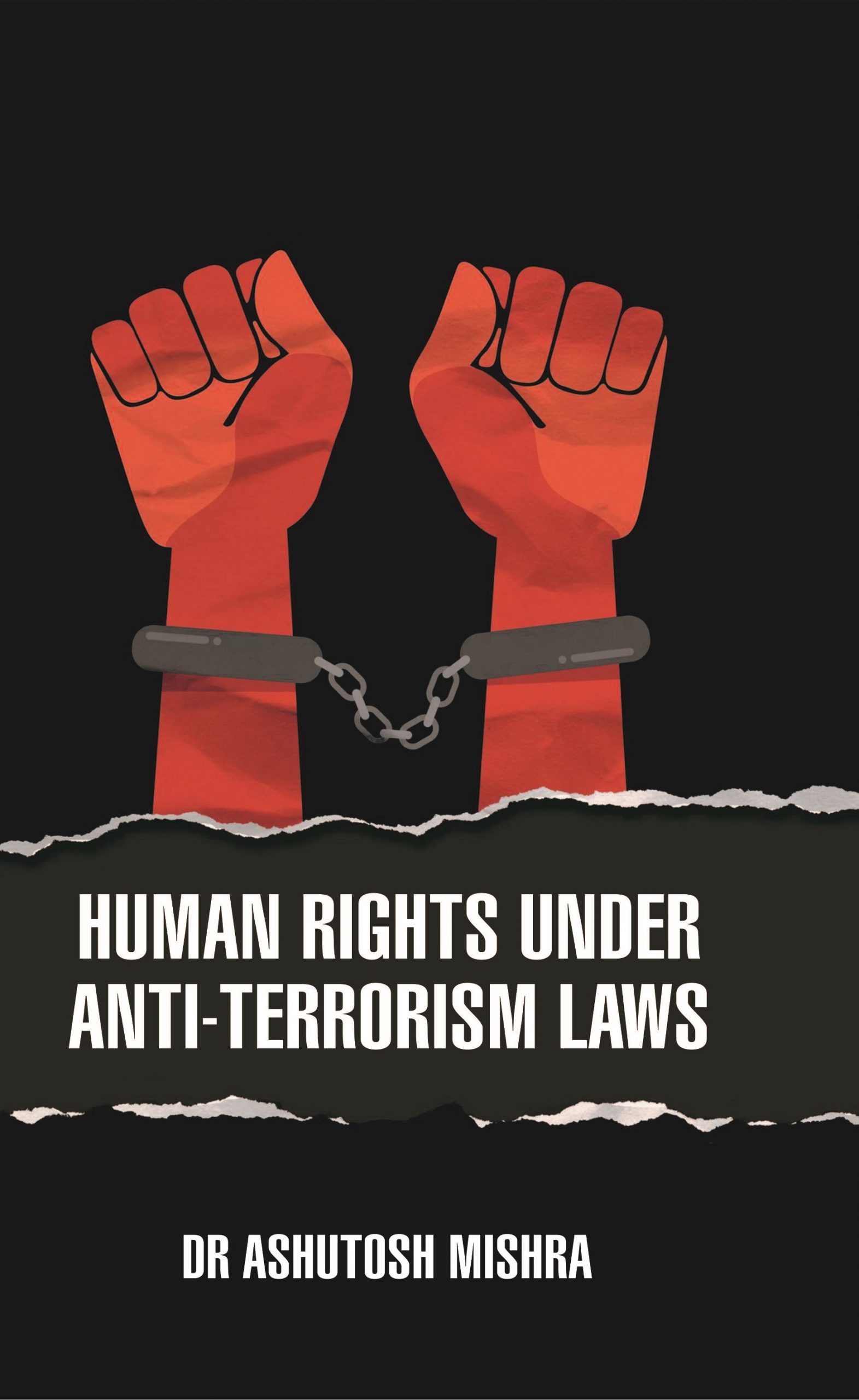
HUMAN RIGHTS UNDER ANTI-TERRORISM LAWS
Irrespective of where it happens, terrorism has a tremendous human cost and a direct impact on human rights. In addition to directly affecting the human rights of individuals, terrorism also violates human rights indirectly by destabilising governments, sabotaging the functioning of a civil society, and threatening peace and security, and social and economic development. Security of an individual is a basic human right, the protection of which is the fundamental obligation of a government. Every nation therefore has a positive obligation to ensure the protection of human rights of its citizens and others, which includes protecting them against the threat of terrorist acts and bringing the perpetrators of such acts to justice.
Recently, however, human rights and the rule of law have been endangered by the State measures to counter terrorism themselves. For instance, States send suspected terrorists to other States where the possibility of torture or other human rights abuse is more imminent. Such practices are in clear violation of international legal obligations. Further, Judiciary has been made ineffective, and voices of human rights defenders have been repressed. Taken together, these practices have a corrosive effect on the rule of law, good governance and human rights. Also, contrary to their aims, they hinder a nation’s efforts to combat terrorism.
Thus, to win the fight against terrorism, it must be backed by a respect for human rights and the rule of law. This can be done by developing national strategies to counter terrorism, and promoting and protecting human rights and the rule of law. It also implies adoption of measures to address conditions like ethnic or religious discrimination, political exclusion, or other measures which might prove instrumental in promoting terrorism. Further, human rights violations need to be strictly condemned and prohibited under national laws, with adequate provisions for investigations against and prosecution of perpetrators of such violations. Lastly, adequate attention needs to be given to the rights of victims of human rights violations, through restitution or compensation.
This Paper aims to strengthen the understanding of the relationship between human rights and terrorism. It identifies certain particular Human Rights challenges raised in the context of Terrorism and Anti-Terrorism Laws, and how these laws have misused in the past to violate Human Rights. It also highlights the international framework to combat Terrorism and the international framework for Human Rights. Lastly, it studies these issues in the Indian context, and suggests some principles and standards which may be adopted to counter terrorism and protect human rights at the same time.
HYPOTHESIS
- Terrorism constitutes a serious threat to Human Rights
- Anti-Terrorism Legislations are misused to violate Freedom of Expression
- Anti-Terrorism Laws shape Human Rights concepts
PLAN OF STUDY
The Study shall be tentatively chapterised as follows:
- Introduction
- What are Human Rights
- What is Terrorism
- Human Rights Issues for Counter-Terrorism Strategies
- Specific Issues
- Right to Life
- Absolute Prohibition against Torture
- Transfer of Suspected Terrorists
- Liberty and Security of an Individual
- Equality before Law and Protection from Discrimination
- Right to a Fair Trial
- Prohibition of Incitement to Terrorism under Freedom of Expression
- Freedom of Association
- Right to Privacy
- Abuse of Anti-Terrorism Laws [This sub-Chapter shall dal with instances of misuse of Anti-Terrorism laws across the Globe]
- Human Rights in State of Emergency
- Specific Issues
- An Overview of the International Framework
- International Framework to Combat Terrorism
- International Framework to Promote Human Rights
- The Indian Context
- Indian Anti-Terrorism Law: The Prevention of Terrorism Act 2002 (POTA)
- Human Rights Concerns in the Administration of POTA
- POTA in Courts
- Conclusion and Suggestions [This Chapter shall be an attempt to list suggestions to counter misuse anti-terrorism laws]
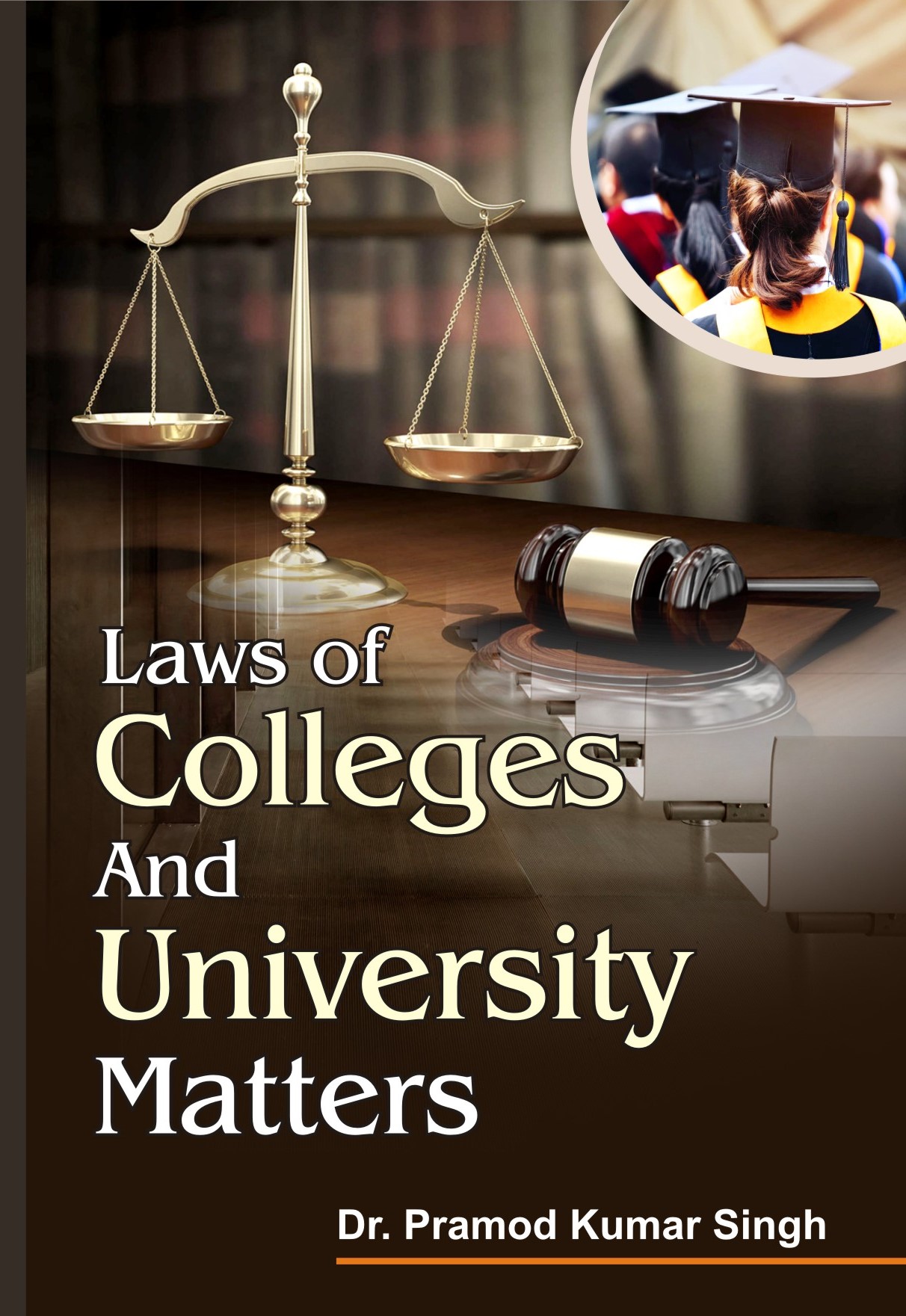
LAWS OF COLLEGES AND UNIVERSITY MATTERS
The book entitled ‘ Laws of Colleges & University Matters’ contains comprehensive information on almost all aspects of colleges and University Matters. Almost all leading judgements of Hon’ble High Courts and Apex Court have been incorporated in 150 chapters of the book concerning each and every aspects of students, teachers, employees, officer, research scholars etc. of colleges and universities .Leading cases have been arranged topic-wise relating to various academic, administrative, discipline , affiliation, U.G.C, recognition and services matters of universities. Numerous aspects of students such as examination, publication of result, research, discipline, students’ union , ragging etc. have also been specifically incorporated in the chapters .The book may be useful for everyone including university teachers, students, officers , lawyers, judges and all others who want to know all about the legal aspects of colleges and university affairs.
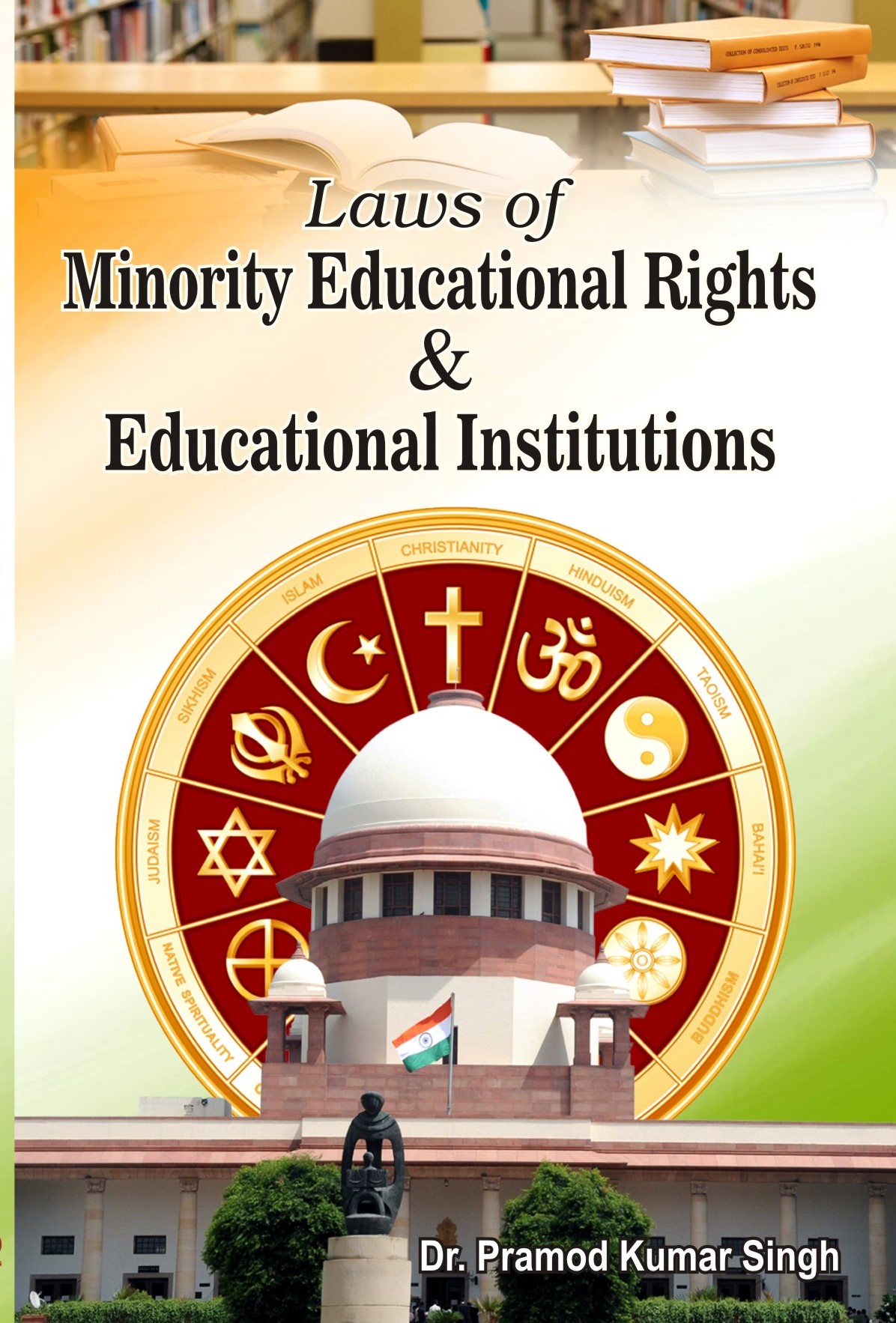
Laws of Minority Educational Rights & Educational Institutions
The Provisions of Article 14 of Constitution provides right of equality to the citizens of India. Article 16 ensures the rights of equality in the matter of public employment. Apart from these rights of equality, these are certain special provisions for providing certain privileges to the backwards and minority communities in the country. The Provisions of Article 29 and 30 of Constitution provide certain special rights to the minority communities; these rights are available to both religious and linguistics minority communities. Article 30 provides right to every religion’s minority viz. Muslim, Buddhists, Sikhs, Jains, Arya Samaj etc. to establish and administer educational institutions of their choice. These rights, however, does not provide t hem to maladminister their institutions. The book is an attempt to sum up the various laws and case-laws governing the educational rights of the minority communities and education institution, viz. Schools and colleges established and run by them.
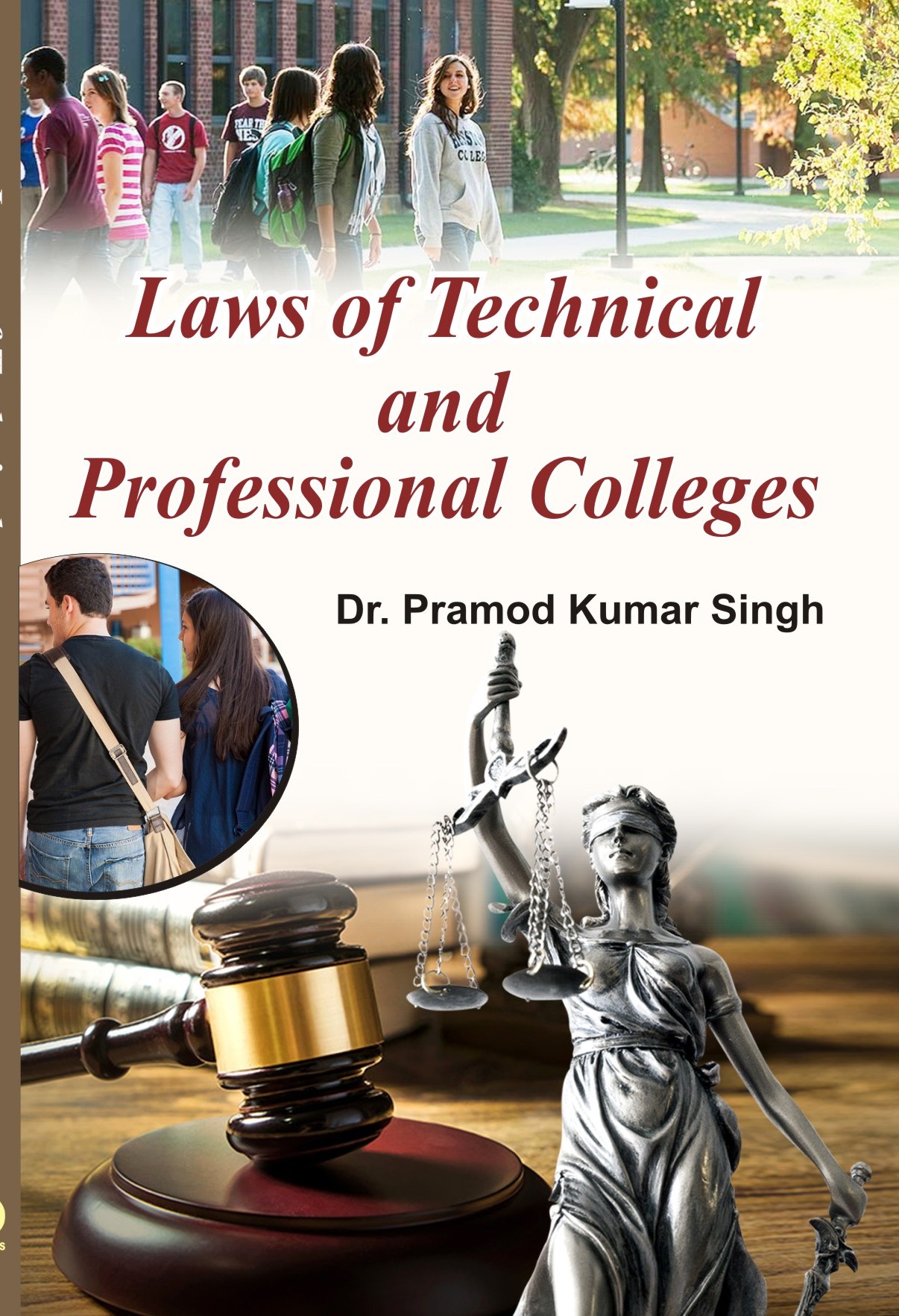
LAWS OF TECHNICAL AND PROFESSIONAL COLLEGES
The book entitled ‘ Laws of Technical & Professional Colleges ‘ contains comprehensive information relating to technical and professional colleges. All relevant Acts, Rules, Statutes, Regulations etc. as well as case-laws on various aspects relating the regulatory, administration and academic affairs of such colleges have been incorporated suitably. The book is extremely useful for lawyers, students, judges’ academicians who are engaged in affairs of establishing and administering the affairs of such colleges and other persons interested to know all about the technical and professional colleges. Almost all relevant judgements of Hon’ble Supreme Court and High Courts have been suitably incorporated in various chapters of the book.
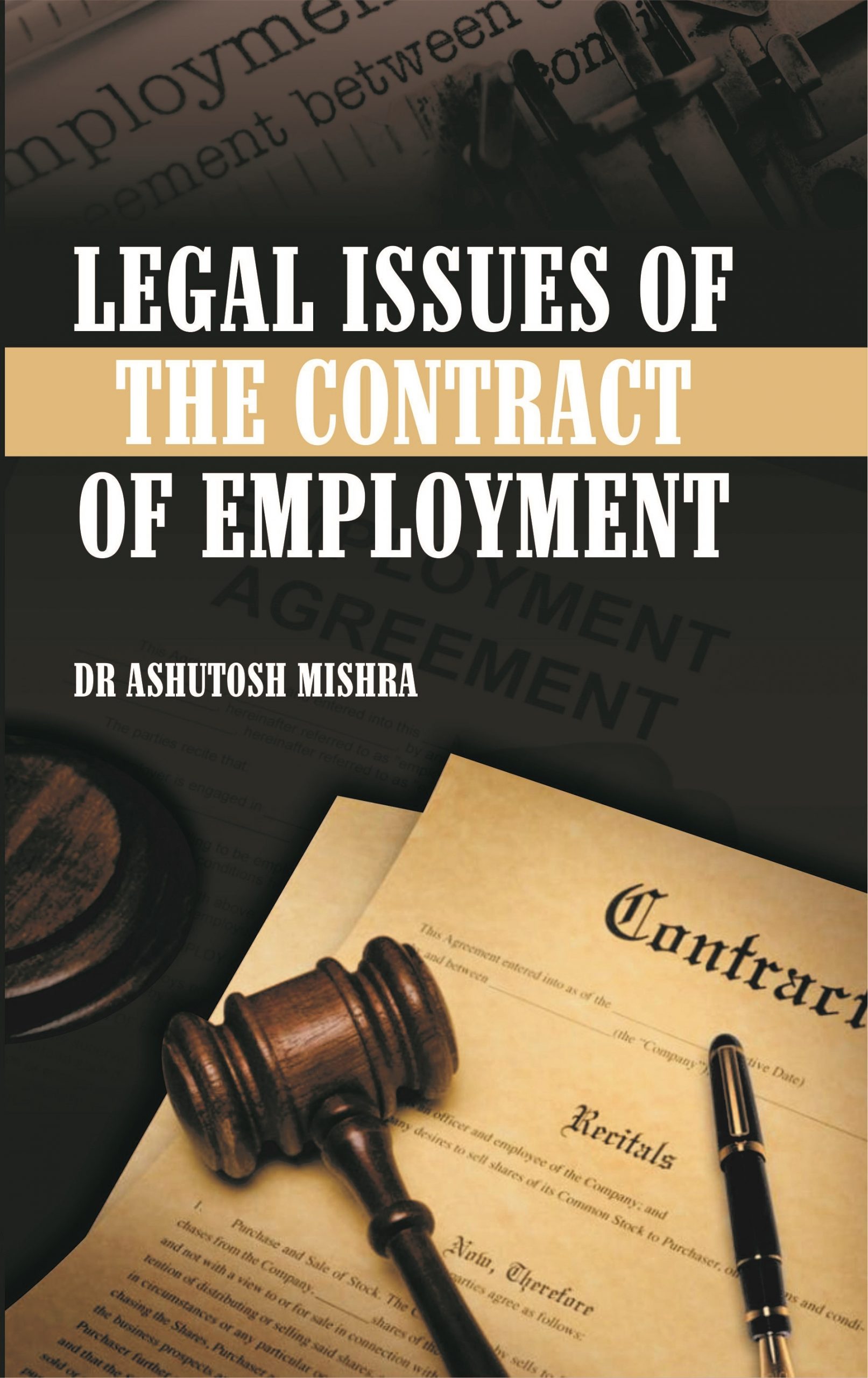
Legal Issues of the Contract of Employment
Contracts have existed in society even before they were recognized in the eyes of the Law. Without contracts, life as we know it would cease to exist. Professor PS Atiyah, one of the most renowned scholars in the realm of contract law, argues that contracts make people better off in the society and further signifies the purpose of contracts to be one of securing cooperation in human behaviour and especially in exchange. It is the profound importance of contracts in human lives which made it enforceable in the eyes of the Law, despite not necessarily involving or impacting the larger public. The laws relating to contracts are now well established in every jurisdiction, and their enforceability is unquestioned. In India, the statutory laws of Contract are one of the oldest laws of the country, enunciated under the Indian Contract Act, 1872. One of the most relevant business contracts is Contract of Employment; it is a contract entered into between the employers and the employees in order to avoid any confusion and to make sure that they are on the same page. In this world of business complexities, a contract of employment is of paramount importance. It is required to secure the rights of the employee against the employer and vice versa. The article here talks about the Contract of Employment, the related laws and the issues that come with the Contract of employment. It further talks about the role of the judiciary in interpreting and solving those issues.
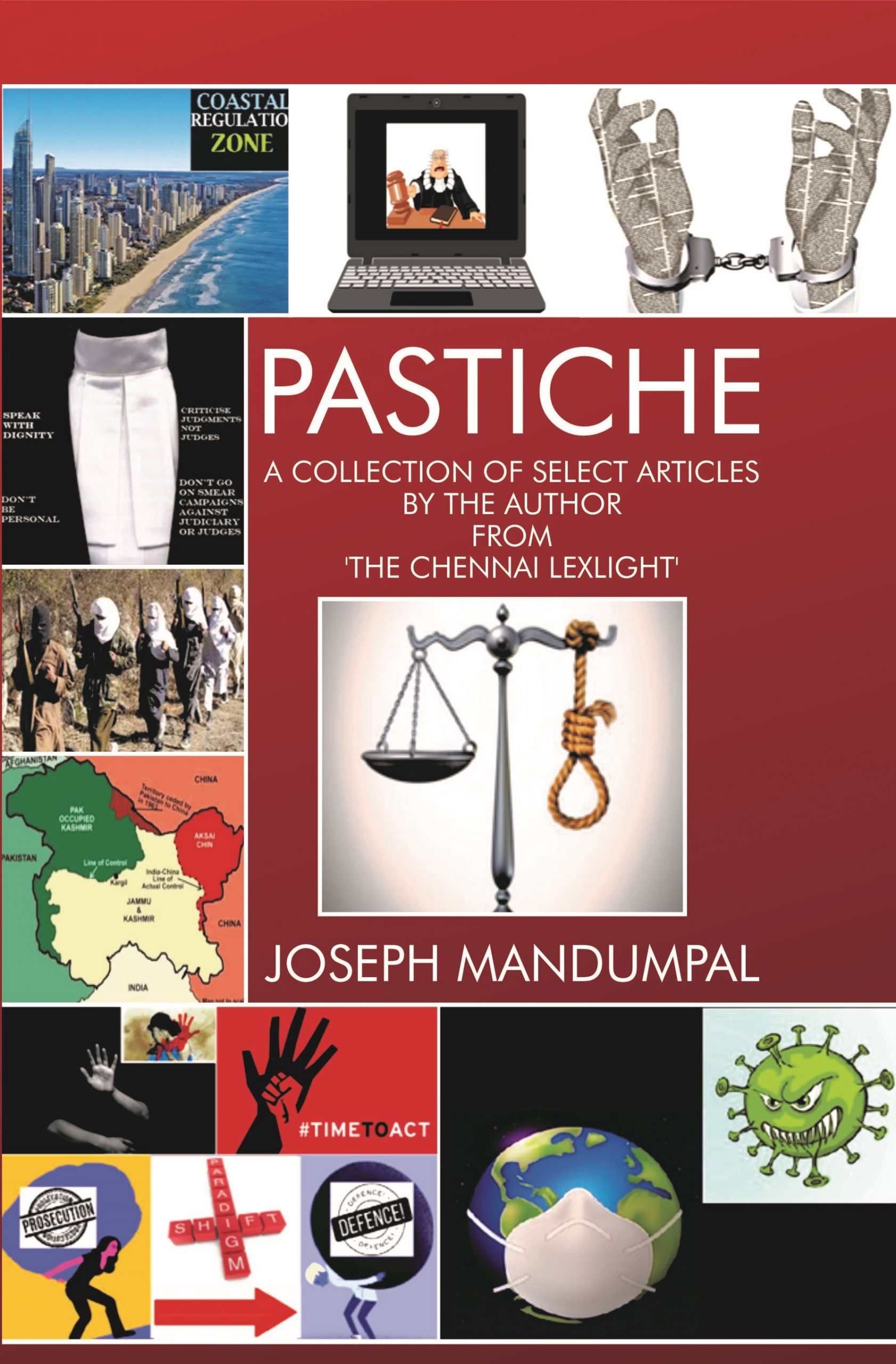
PASTICHE
• Definition of terms
• Reference books
• History of laws in general and of India in particular
• Legal categorization
• Current and popular cases
• Changing phases of the judiciary
• His opinions (not necessarily vouched by me)
The compilation of 9 relevant articles have touched pects which I see as the main takeaways after my reading of the Pastiche.
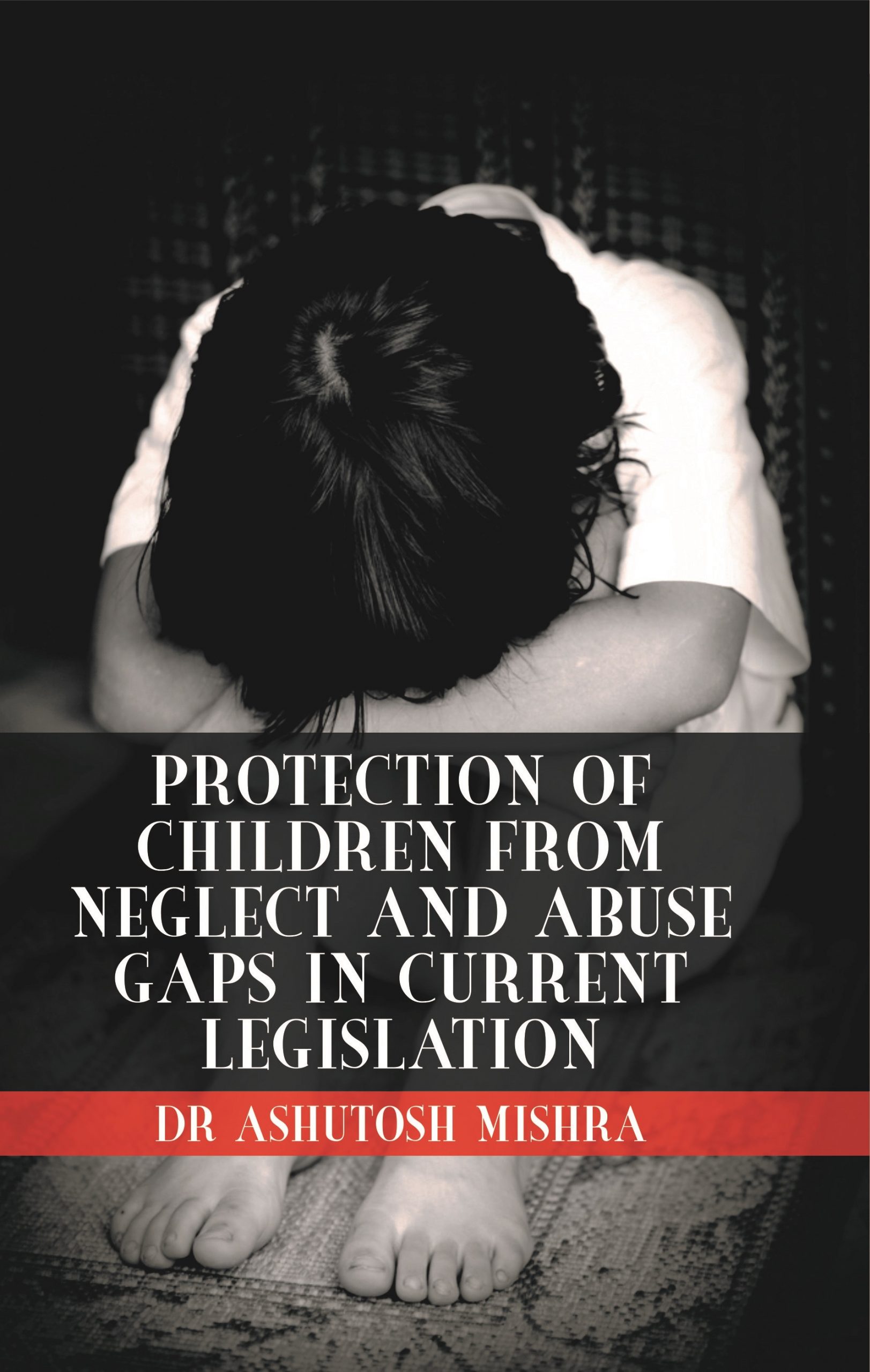
Protection of Children from Neglect and Abuse: Gaps in Current Legislation
Child Abuse & Neglect (CAN) is a worldwide public and social health problem, which exerts a multitude of long term and short term effects on children. The result of children’s exposure to child maltreatment includes elevated levels of post-traumatic stress disorder, mental as well as health concerns, like anxiety, depression, etc. A well outlined epidemiologic, Adverse Childhood Experiences (ACEs) Study revealed: “a high chance of heart disease in adult survivors of children, after correcting for the race, age, smoking & diabetes and education.”[1] Several developed countries of the world have well-evolved child protection systems, primarily focused on mandatory identification, reporting and investigations of affected children, and often taking coercive action. Notifications have posed a burden on families and the system. In these contexts, the problems of child abuse and Neglect in India need severe and more extensive consideration, particularly among the underprivileged rural and urban communities, where child protection systems are not developed—or do not reach. The motive of the present article is to provide an outline of child abuse and neglect from a medical assessment to a socio-legal outlook in India, to ensure a comprehensive and prompt multidisciplinary response to victims of child neglect and abuse. In the course of their busy clinical practice, medical professionals can also make use of the telephone helpline (CHILDLINE telephone 1098) to refer to cases of child abuse, thus connecting them to socio-legal services.
[1] Narendra Saini, Child Abuse and Neglect in India: Time to act 8.

Protection of Trade Secrets in light of Business Law
“Intellectual property (I.P.) laws are generally territorial, but trade secret protection varies according to jurisdiction. Trade secret law protects technological and commercial information not generally known in the trade and prevents unauthorized commercial use by others. The policy behind trade secret protection is to encourage research and development by protecting the originator of business information and maintain proper standards of business ethics. A trade secret is common ‘any formula, pattern, device or compilation of information which is used in one’s business, and which gives the human opportunity to obtain an advantage over competitors.’ There are three factors common to all definitions of a trade secret: (i) it is information not generally known to the public, (ii) it confers economic benefit by maintaining secrecy and confidentiality and (iii) is the subject of reasonable efforts to maintain its secrecy. Trade secrets act as an incentive to incremental innovation in technology, not meeting the non-obviousness standard of patent law and copyrights. The inventions protected as a utility model, trademarks, industrial designs, artistic or literary works are often maintained as trade secrets until used or published during the process of registration or grant of the relevant I.P.R. A substantial part of economically meaningful technology, particularly new and cutting edge technology are prone to reverse engineering, such as biotechnology, computer program microchips, computer-aided designs and hence preserved as trade secrets. The exclusivity of the protection allows the innovation, invention and reproduction, by offering the owner an opportunity to discourage free riders and to recoup his investment. Trade secrets play a pivotal role in protecting innovations and establishing rights to use new technology. Trade secret protection extends to formula, patterns, plans, designs, physical devices, processes, software and know-how. The author in this article talks about the need for Trade Secret laws in India and their importance.”
